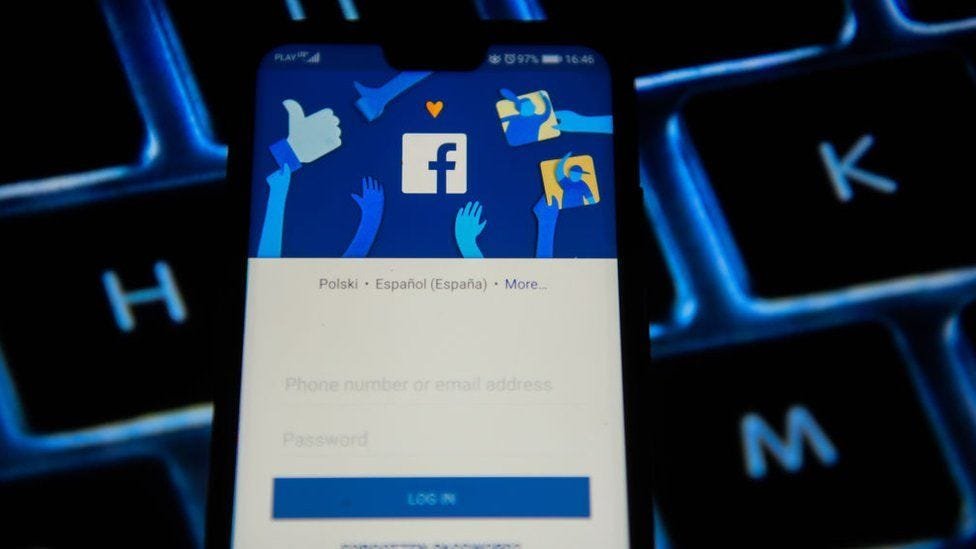Creating a fake email address can be a quick and effective way to maintain your privacy online, avoid spam, and manage multiple online accounts without cluttering your primary inbox. Whether you need a temporary email for a one-time registration or a pseudonymous address for privacy, there are several easy methods to get the job done. In this article, we'll explore various ways to create a fake email address in seconds, providing step-by-step guides and best practices to ensure you stay safe and compliant.
2. Why Create a Fake Email Address?
Creating a fake email address can serve multiple purposes, all of which revolve around enhancing your online experience and privacy.
2.1 Privacy Protection
In an era where personal information is frequently harvested, using a fake email address can help protect your identity. By keeping your real email address hidden, you minimize the risk of your personal data being misused.
2.2 Avoiding Spam
Signing up for newsletters, trials, or contests can lead to an influx of spam emails. A fake email address helps you manage these without cluttering your primary inbox, keeping it free from unwanted messages.
3. Legal Considerations
While creating fake email addresses can be beneficial, it's important to understand the legal and ethical implications.
3.1 Ethical Use
Using a fake email should always align with ethical practices. Ensure that you're not using it to deceive others, commit fraud, or engage in illegal activities.
3.2 Legal Risks
Some jurisdictions have specific laws regarding the use of fake email addresses. It's crucial to familiarize yourself with local regulations to avoid any legal issues.
4. Methods to Create a Fake Email
There are several ways to create a fake email address, each with its own set of advantages and limitations.
4.1 Temporary Email Services
Temporary email services provide disposable email addresses that self-destruct after a certain period. These are ideal for short-term use when you don't need long-term access.
4.2 Email Forwarding Services
Email forwarding services allow you to create an alias that forwards incoming emails to your real account. This method offers more control and longevity compared to temporary emails.
5. Temporary Email Services
Temporary email services are a popular choice for creating fake email addresses quickly and easily.
5.1 Popular Providers
Some well-known temporary email providers include Tempmailobox, 10 Minute Mail, Guerrilla Mail, and Mailinator. These services offer instant email addresses with a limited lifespan.
5.2 How They Work
These services generate a random email address that you can use immediately. Emails sent to this address are available for a short period, typically ranging from 10 minutes to a few hours.
6. Email Forwarding Services
Email forwarding services provide a more permanent solution compared to temporary emails.
6.1 Popular Providers
Services like Forward Email and Mailfence allow you to create aliases that forward emails to your real inbox. This method is useful for maintaining privacy over a longer term.
6.2 How They Work
You create an alias email address through the service. Any emails sent to this alias are automatically forwarded to your primary email account, allowing you to manage messages without revealing your real address.
7. Creating a Fake Email Using Gmail
Gmail is a widely used email service that can be configured to create a fake email address.
7.1 Step-by-Step Guide
- Sign in to your Gmail account.
- Click on the gear icon and select "See all settings."
- Go to the "Accounts and Import" tab.
- In the "Send mail as" section, click "Add another email address."
- Enter the fake email address you want to use.
- Verify the email address (this may require access to the fake address's inbox).
7.2 Tips and Tricks
Using the "plus" sign trick in Gmail can help. For example, if your email is john.doe@gmail.com, you can use john.doe+shopping@gmail.com and emails will still come to your primary inbox.
8. Creating a Fake Email Using Outlook
Outlook also provides options for creating fake email addresses.
8.1 Step-by-Step Guide
- Log in to your Outlook account.
- Click on the gear icon and select "View all Outlook settings."
- Go to the "Mail" section and then "Sync email."
- Under "Email aliases," click "Add alias."
- Enter the fake email address and confirm.
8.2 Tips and Tricks
Utilize Outlook's alias feature to create multiple email addresses under one account. This helps in organizing and managing different identities without needing multiple logins.
9. Best Practices
When creating and using fake email addresses, following best practices can enhance your experience and security.
9.1 Secure Passwords
Always use strong, unique passwords for your fake email accounts. Avoid reusing passwords across different accounts to minimize security risks.
9.2 Regular Deletion
Regularly delete fake email addresses you no longer use. This helps in maintaining your privacy and security by limiting the lifespan of these accounts.
10. Risks and Limitations
While fake email addresses can be useful, they come with their own set of risks and limitations.
10.1 Limited Lifespan
Temporary email addresses have a short lifespan, making them unsuitable for long-term use. Be prepared for these addresses to expire and plan accordingly.
10.2 Security Concerns
Fake email addresses might not have the same level of security as regular email accounts. Ensure that you don't use them for sensitive communications or storing important information.
11. Case Studies
Exploring real-world use cases can provide insights into how fake email addresses are commonly used.
11.1 Common Use Cases
- Signing up for trials: Use a fake email to sign up for free trials without committing to future emails.
- Online shopping: Protect your primary email from promotional spam by using a fake email for purchases.
11.2 Real-World Examples
Many users create fake emails for online dating profiles to maintain anonymity until they are comfortable sharing their real information. This helps in managing privacy and safety concerns effectively.
12. Comparing Services
Comparing different services can help you choose the best option for your needs.
12.1 Features
Temporary email services are ideal for short-term use with instant setup, while email forwarding services offer more control and longevity. Consider the features and ease of use when selecting a service.
12.2 Costs and Benefits
Most temporary email services are free, while some email forwarding services may have premium options. Evaluate the costs against the benefits to make an informed decision.
13. Frequently Asked Questions
13.1 How Long Do Temporary Emails Last?
Temporary emails typically last from 10 minutes to a few hours, depending on the service.
13.2 Are Fake Emails Traceable?
Fake emails can be traceable if used improperly. Always use these services ethically to avoid legal issues.
13.3 Can I Use Fake Emails for Social Media?
Yes, fake emails can be used to sign up for social media accounts, but be aware of the platform's policies.
13.4 Are There Free Services?
Many temporary email services are free, such as 10 Minute Mail and Guerrilla Mail.
13.5 Is It Illegal to Use a Fake Email?
Using fake emails is not illegal, but using them for malicious activities can lead to legal consequences.
14. Conclusion
Creating a fake email address can be a quick and effective way to protect your privacy and manage your online presence. Whether you need a temporary address for a single use or a more permanent solution, there are various services available to meet your needs. Always remember to use these tools ethically and responsibly, ensuring you stay within legal boundaries while enjoying the benefits of a clutter-free inbox and enhanced privacy.
FAQs
1. How can I ensure my fake email remains secure?
Use strong, unique passwords and enable two-factor authentication if available.
2. Can I receive attachments in a fake email address?
Most temporary email services do not support attachments, but some email forwarding services do.
3. What should I do if my fake email is compromised?
Immediately delete the compromised email address and create a new one to avoid any security issues.
4. Can I use a fake email for banking or financial services?
It's not recommended to use fake emails for sensitive accounts like banking or financial services due to security concerns.
5. Are there any risks in using a fake email address?
Yes, risks include limited lifespan, security vulnerabilities, and potential legal issues if used improperly. Always use these services responsibly.

